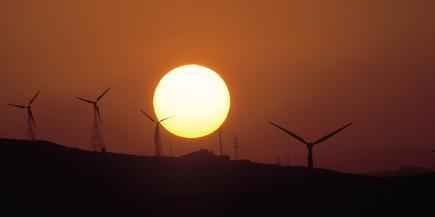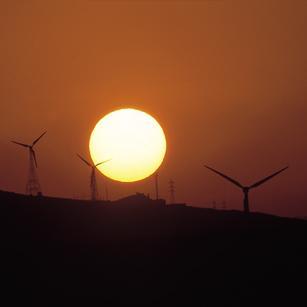A sustainable and green European Union is possible - but how?
The future of the European Union is dependent on a complete shift to a decentralised energy system. Nature cannot be protected otherwise.
01-18-2022
What you ignore to fuel growth will hurt you
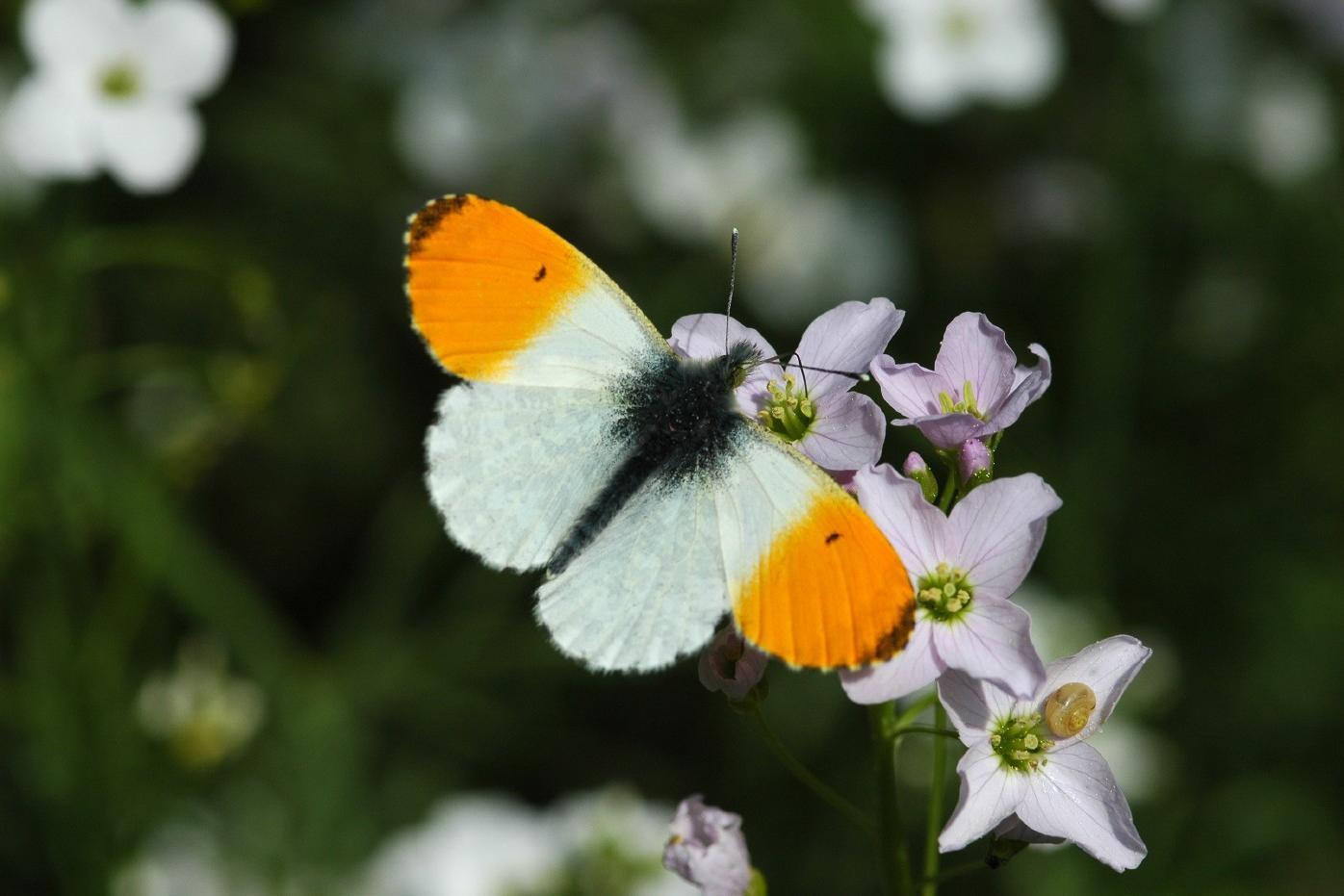
Orange tip on cuckoo flower
© Gunther WillingerIt’s undeniable: we’re in a deep ecological and climate crisis. We have reached a breaking point and our ecosystems are collapsing. This means that losing just one species or habitat can have a cascading effect that can impact, for example, our soils and therefore our food or our aquifers and therefore drinking water. Our lives depend on these ecosystems.
While our rivers, forests and oceans are degrading, we humans want to keep building more, exploit more resources, and use more wild areas. However, we forget that we need to make our ecosystems more resilient. This means that if we want to tackle the climate crisis, we need to start looking at our planet’s ecological capacities and take sustainable action – not just for reducing carbon emissions but also to ensure that nature will be protected and restored. Climate and biodiversity targets should not be pitted against each other. Both are needed for a healthier planet and both the IPCC and IPBES scientists have made this very clear.
But many Europeans are sceptical about how to achieve this, mainly because there is so much misinformation and greenwashing about energy systems. Our society is dependent on energy, but we also need to shift away from energy from fossil fuels and nuclear energy. Achieving a balance between this energy system shift and the protection of nature will mean looking at the solutions differently and finding solutions that are win-win for everyone. The EU’s Renewable Energy Directive will be the key legislation to drive this forward.
Energy solutions that work with nature are the way forward
And the answer is not simple. All renewable energies have an impact on nature, such as wind power and solar power, but can be mitigated with proper spatial planning; removing other human activities, such as fishing or illegal hunting, to reduce the burden on ecosystems; and generally increasing the resilience of the ecosystem by restoring nature.
But watch out for greenwashing!
However, one thing is for sure, there are other renewable energies that are so destructive to nature that not even spatial adjustment will fix them. This includes hydropower and forest biomass, both of which are often presented as "green and clean" sources of energy. Hydropower, small or large, destroys river ecosystems by disturbing the flow of the river and its biodiversity. Hydropower infrastructure disrupts fish migration, destroys habitats dependent on the natural flood cycle of rivers, reduces groundwater levels and increases the risk of flood disasters. Logging forests for forest biomass degrades forest ecosystems and habitats for animals, including threatened species such as bears, lynx and wolves. It is still dumbfounding that in Portugal, my own country, they built the Alqueva Dam. It not only destroyed Natura 2000 sites, flooded villages, but also precious prehistoric art.
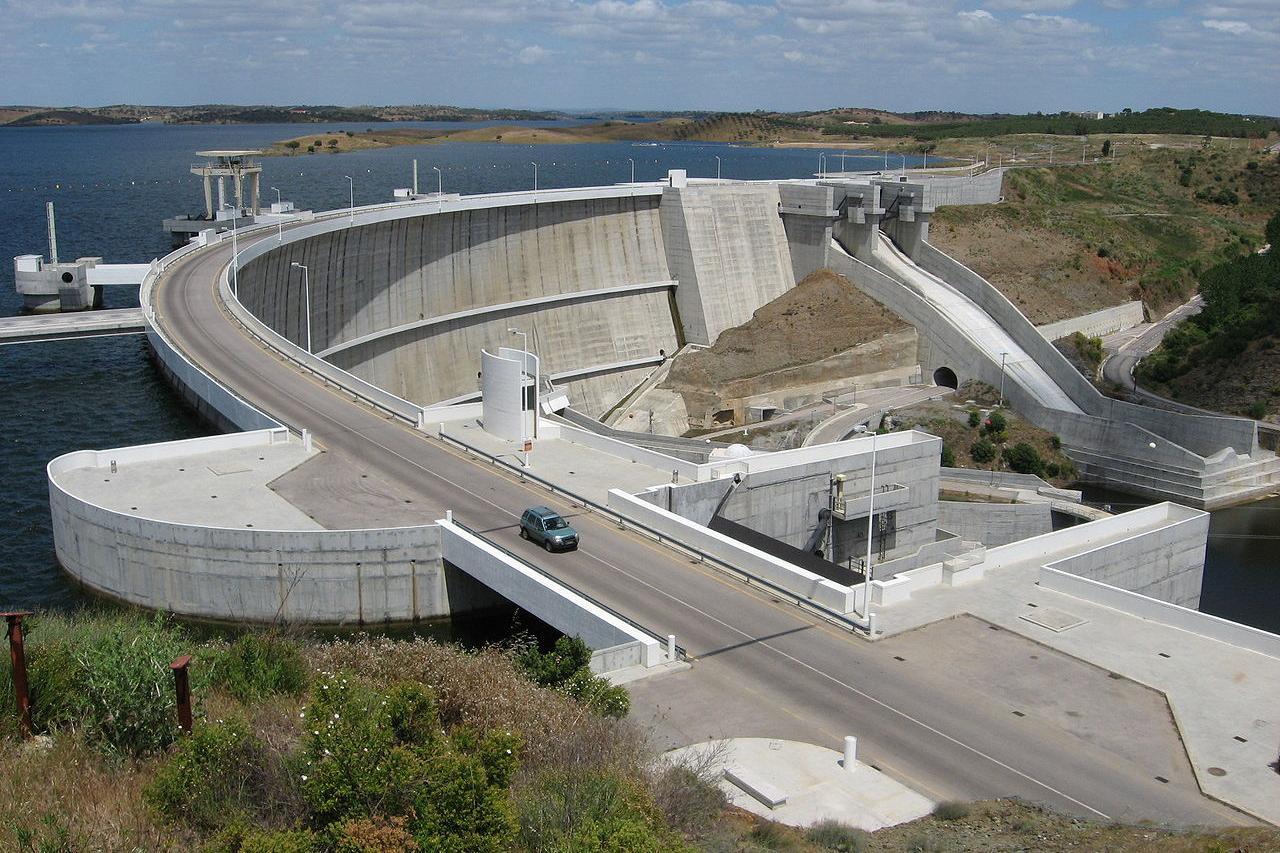
Alqueva Dam in Portugal
© Ceinturion; Wikimedia CommonsThe amount of energy we consume and how we get it matters, too
The future of our energy systems will also need to support a massive reduction in our energy consumption, which will enable us to live our lives while producing less energy. This doesn’t just mean changes in consumer behaviour and choices, but also in government choices for future grid infrastructures. The fact that the EU allows for almost half of the energy supplied in Europe today to be lost, and a big chunk because of the distance in the distribution from source to end-user, is simply incomprehensible to me. One solution to this is to rethink our grids, having more local sources of energy production and connecting end-users to the closest source. This goes hand in hand with decentralising our energy system and letting households supply energy, thereby creating community islands. Energy from solar photovoltaic will play a big role in achieving this, while energy from centralised systems, such as new hydropower plants, should be discouraged. Europe currently works through centralised energy systems, which means that there is a limited amount of energy sources that produce most energy that is supplied.
We can also renovate buildings to reduce the amount of energy that is lost as another part of the solution and it can also help rural communities transition away from burning coal or wood. Deep renovation would mean insulating houses to reduce the amount of energy that is lost as well as helping people generate their energy. It also means restructuring heating systems in such a way that they can be adapted to new energy sources, such as geothermal energy.
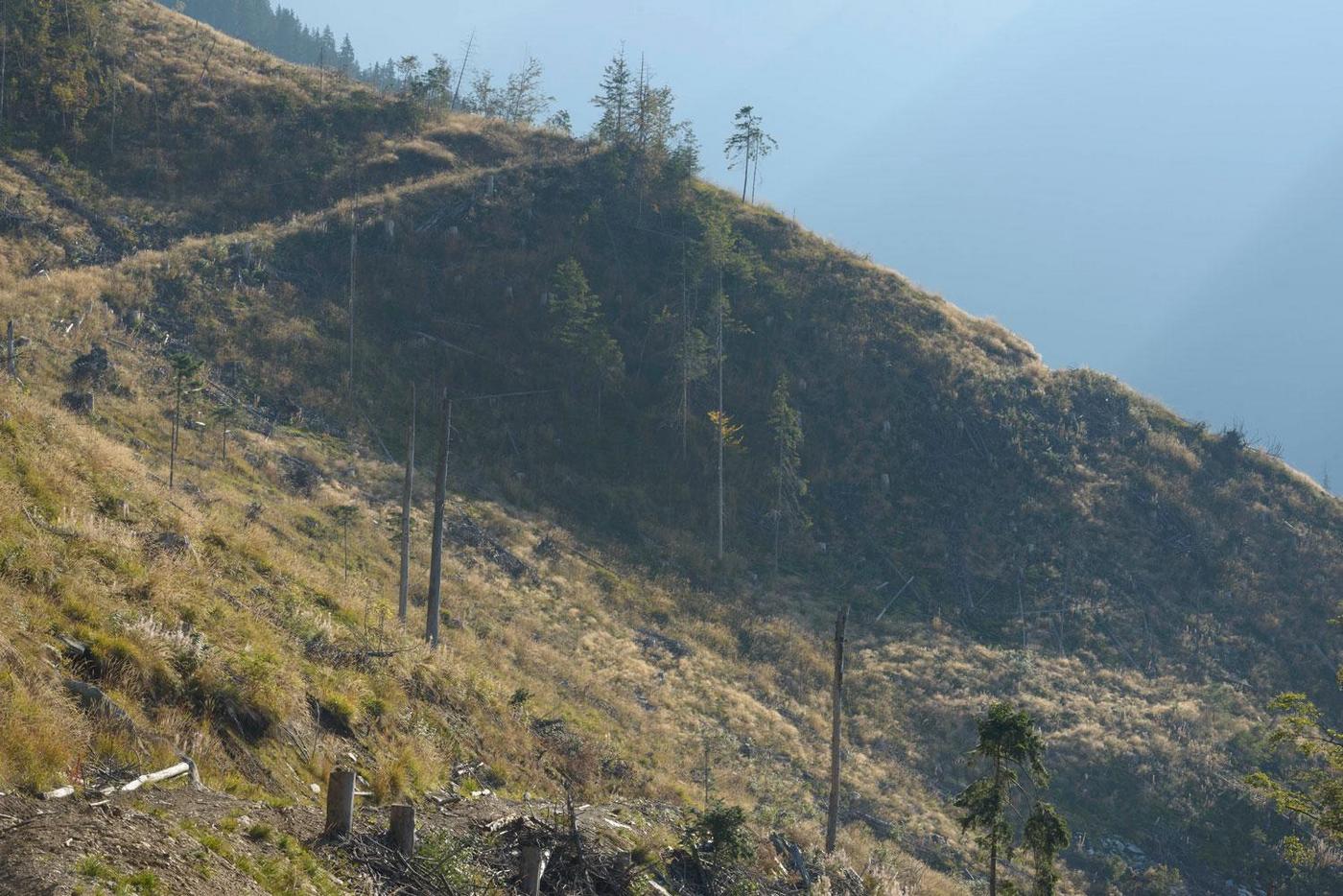
Destroyed natural forest in Romania
© Matthias Schickhofer/EuroNaturNew year, new energy
Creating a win-win situation for tackling both climate change and biodiversity loss means focusing on how to shift away from problematic forms of energy production and excessive consumption, and finding solutions that work for everyone. Therefore, the EU needs to dramatically shift how it views its energy systems and give itself a new direction. We will not achieve our ambitions if we focus on the same old centralised models and don’t develop a long-term vision. Politicians need to act in urgency to tackle both the climate and biodiversity crises simultaneously.
In July 2021, the European Commission proposed to revise a whole set of energy-related legislation to try and fix the crises we’re in. Unfortunately, they focus on doing creative accounting and continue to do business as usual. At EuroNatur, we have decided that a better future is possible, and therefore we will spend the next couple of years convincing politicians that the Renewable Energy Directive can work for nature (#RED4Nature) while also achieving the climate objectives.
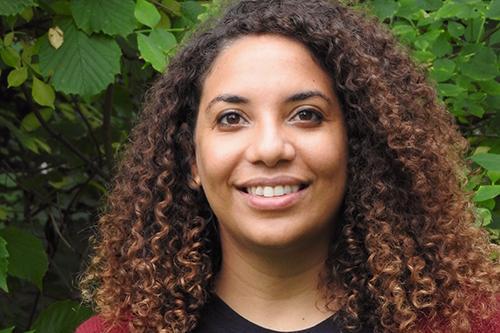
Author: Bruna Campos is the Senior Policy Manager at EuroNatur and an avid advocate for system change in the European Union.
We welcome your opinions on this blog post. Send Bruna an email with your thoughts on the topic: bruna.campos(at)euronatur.org
Read also our other blog posts



